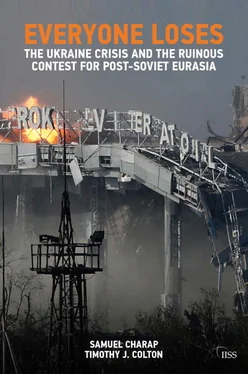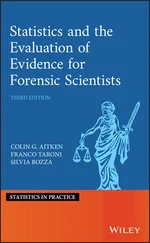Gorbachev in particular bought into a broad reading of the spirit of the interchanges with the Americans, and it – plus, one has to think, a dose of wishful thinking – weighed heavily in his acceptance of the reunification scheme. When NATO several years later began preparations to take in new members to the east, he cried foul, as has each successive Russian leader since. [20] ‘It was definitely a violation of the spirit of the statements and assurances made to us in 1990.’ Maxim Korshunov, ‘Mikhail Gorbachev: I Am against All Walls’, Russia Beyond the Headlines, 16 October 2014, http://rbth.com/international/2014/10/16/mikhail_gorbachev_i_am_against_all_walls_40673.html .
In Shifrinson’s judgement, the Russians ‘are essentially correct’ in their grievance. ‘NATO expansion was to violate… the quid pro quo at the heart of the diplomacy that culminated in German reunification within NATO.’ [21] Shifrinson, ‘Deal or No Deal?’, p. 40. Shifrinson also documents (p. 38) that some working-level officials in the Department of State and Pentagon penned briefs as soon as October 1990 about the desirability of keeping NATO’s door ajar and ‘not [giving] the East Europeans the impression that NATO is forever a closed club’.
The policymakers who subsequently chose to enlarge NATO, to be fair, did not think that such a quid pro quo ever existed. But this divergence in views itself indicates that the overarching issue was not truly resolved. In terms of the politics of it, this ‘settlement-that-wasn’t’ became vulnerable to allegations ex post facto in Moscow, either that the West acted in bad faith, or that Gorbachev should have held out for better terms instead of giving away the store.
An aspect of the German reunification procedure that bears emphasis is the reliance on what Sarotte discerningly couches as ‘prefab’ change, a methodology hinged on the mechanical extension of existing formulas and structures rather than negotiation of mutually acceptable substitutes for them. Not only did the Federal Republic literally absorb the GDR into its pre-existing constitutional and legal order, but the newly reunified state was a full member of NATO and of the EC (to be elevated in 1993 into a European Union) to boot. Prefab had its virtues: it ‘wasted no time on conceptualizing new accords and institutions’, it did not set out to fix what was not broken, and it ‘conferred a strong element of predictability on the chaotic… overhaul of both domestic and international order’. [22] Sarotte, 1989 , p. 200.
In the case of German reunification, the prefab approach also paid off in almost everyone’s estimation, so much so that it became a template. To join the winners’ club, other countries must change themselves to conform with its existing rules; the institutions do not change in order to take on new members.
The paradox was, as Sarotte notes, ‘the struggle to recast Europe after the momentous upheaval of 1989 resulted in prefabricated structures from before the upheaval moving eastward and securing a future for themselves. Americans and West Germans had successfully entrenched the institutions born of the old geopolitics of the Cold War world – ones that they already dominated, most notably NATO – in the new era.’ [23] Ibid. , pp. 200–1.
The counter-scenarios emanating sporadically out of Moscow – great-power condominium, a pan-European home, Finlandisation and so on – were half-baked and were discarded sequentially under the pressure of time and circumstance. Faced with a choice between a leap into the unknown and reliance on a proven model, Western policymakers’ instinct was to shun vague, if high-minded, concepts and stick with the familiar.
Another thorny complication of the settlement-that-wasn’t of 1989–91 bore on the soon-to-be-former Soviet superpower. Absent any act of reconciliation with the West, and any formal agreement to record and enforce it, no one could know where it fit in the new/old scheme of things. The quick fix of prefab did not delineate any definite place for it, not out of conscious malice but because it was too unwieldy to conform to the rigid standards. As a result, to borrow Sarotte’s words, ‘Russia was left on the periphery of a post-Cold War Europe’. [24] Mary Elise Sarotte, ‘A Broken Promise? What the West Really Told Moscow about NATO Expansion’, Foreign Affairs , vol. 93, no. 5, September/October 2014, p. 97. Sarotte has written that this was done ‘by design’. We agree that one effect of the institutional design adopted at the time was to place Russia on Europe’s periphery, but we do not see this as the intended result.
The country agent in her sentence is Russia , the Soviet Union having gone extinct at the end of the two years.
A flotilla of successor states, formerly constitutive ‘union republics’ of the USSR, which fell apart as the central government and the Communist Party lost their grip, set sail as 1991 came to a close. In their midst was Russia, formally co-titled the Russian Federation (identified until then as the RSFSR, the Russian Soviet Federative Socialist Republic), which became the agreed legal successor of the Soviet state, and took over its embassies, its veto-bearing seat in the UN Security Council and the lion’s share of its awesome arsenal of weapons of mass destruction. This new Russia, its top offices housed in the same midtown Moscow buildings as their Soviet precursors, encompassed 77% of the USSR’s landmass (16.4m square kilometres), 51% of its population (147.4m), 70% of its manufacturing and 91% of the oil pumped. That said, it was no Soviet Union. Territorial contraction and political and economic turmoil (its GDP dropped calamitously by 40% between 1991 and 1998) diminished it in almost every objective respect and in the subjective assessments of onlookers. While the Russian Federation was nominally a brand-new state, and not a rump USSR minus its non-Russian parts, its citizens and elite saw themselves as heirs to the Soviet legacy. Loath as the Americans and Germans were to say it out loud, the unwinding of two quasi-empires – an outer one in East Central Europe, an inner one in post-Soviet Eurasia – amounted to a staggering defeat for the ‘Russian’ state. Trauma stemming from this loss of face was inevitable and would need to be well managed – which it was not, to the detriment of all.
The proliferation of the other offspring of the Soviet Union was no less bewildering than the advent of a downsized Russia. A few had fought for their independence; the rest accepted it when it fell into their laps after the republic leaders of Belarus, Russia and Ukraine signed the December 1991 Belavezha Accords, which declared the end of the USSR. Nine of the 14 were sandwiched between the Russian Federation, East Central Europe and NATO member Turkey; the other five were in faraway Central Asia. Eleven of those 14 assented to join a loose-knit supranational Commonwealth of Independent States (CIS) along with Russia. [25] Along with Russia, Armenia, Azerbaijan, Kazakhstan, Kyrgyzstan, Moldova, Tajikistan, Turkmenistan and Uzbekistan were founding members. Georgia did not join until 1993.
The three Baltic republics (Estonia, Latvia and Lithuania), having declared independence as early as August 1991, boycotted the CIS. It was a mark that they were already positioning themselves in the East Central European category, a move strongly backed by the US and not much resisted by Russia. [26] The three Baltic states had been independent countries between the world wars. The United States had never recognised their annexation by the Soviet Union in 1940.
The newcomers were internationally recognised and had seats in the UN and the CSCE (membership of which ballooned to 53). They would waste no time acquiring diplomatic services, border posts and national armies, and all the other trappings of statehood. [27] Belarus and Ukraine had formally been members of the UN since 1945, despite their subordination to the Soviet government in Moscow.
Читать дальше











